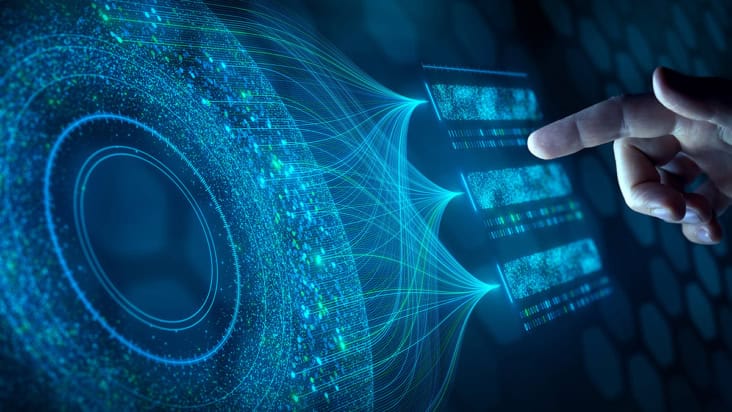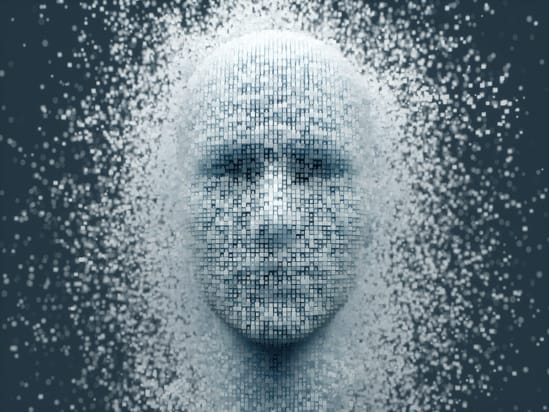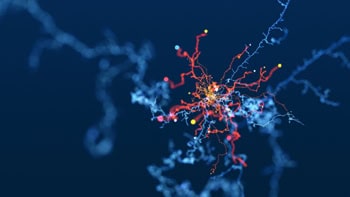

Artificial intelligence is playing a rapidly growing role in scientific research – from medical to particle physics – and was recognized with the award of the 2024 Nobel Prize for Physics. This collection also explores how this new technology is being used in society, and ponders the ethical questions that surround it.
Claire Malone looks at the ups and downs of using AI to communicate science

How artificial intelligence is accelerating discoveries – and raising profound questions – about the future of physics
Julianna Photopoulos explores the issues of racial and gender bias in AI – and what physicists can do to recognize and tackle the problem

Margaret Harris reviews You Look Like a Thing and I Love You by Janelle Shane
Can you make an impact through peer review?
Join more than 15,000 researchers who have achieved IOP Trusted Reviewer status – Tell me more

Irina Grigorescu, a medical physicist at King’s College London, explains how artificial intelligence can transform medical physics
 Read article: Medical marvels: how AI is boosting healthcare
Read article: Medical marvels: how AI is boosting healthcare
Jessica Esquivel explores the beneficial collaboration between artificial intelligence and particle physics that is advancing both fields
 Read article: AI and particle physics: a powerful partnership
Read article: AI and particle physics: a powerful partnership
Computer scientist Rick Stevens is our podcast guest
 Read article: Artificial intelligence: developing useful tools that scientists can trust
Read article: Artificial intelligence: developing useful tools that scientists can trust
An algorithm developed by Cambridge physicist Gareth Conduit and inspired by many-body quantum mechanics is the driving force behind a novel materials-science spin-out
 Read article: Neural networks extract information from sparse datasets
Read article: Neural networks extract information from sparse datasets
Combining forces with other numerical approaches, as well as collaborating with other research groups across the world, adds strength to data-driven techniques for materials science
 Read article: Machine learning collaborations accelerate materials discovery
Read article: Machine learning collaborations accelerate materials discovery
The CEO of CEA-Leti speaks with Physics World at Photonics West 2020
 Read article: Emmanuel Sabonnadière describes technology trends within optoelectronics
Read article: Emmanuel Sabonnadière describes technology trends within optoelectronics
Explore our two regular podcast series! Physics World Weekly looks at the latest events and headlines in physics, as well as featuring short interviews with scientists and our team of journalists. Physics World Stories takes a more in-depth look at a topic.

New technique could be used to design a wide range of optical devices
 Read article: Artificial intelligence reveals how light flows around nanoparticles
Read article: Artificial intelligence reveals how light flows around nanoparticles
Astrophysics algorithm is applied to seismic waves
 Read article: Artificial intelligence spots unusual feature at Earth’s core-mantle boundary
Read article: Artificial intelligence spots unusual feature at Earth’s core-mantle boundary
Diffusion-maps method needs no prior knowledge about a physical system
 Read article: Machine learning spots topological phase transitions in experimental data
Read article: Machine learning spots topological phase transitions in experimental data
Artificial intelligence-derived image features predict prostate cancer recurrence with high accuracy
 Read article: Opening the AI box: can deep learning predict cancer recurrence?
Read article: Opening the AI box: can deep learning predict cancer recurrence?
Findings will be important for planetary science as well as condensed-matter physics
 Read article: Machine learning teases out differences in high-pressure ice phases
Read article: Machine learning teases out differences in high-pressure ice phases
An AI system used to detect breast cancer in mammograms achieved a comparable performance to 101 radiologists
 Read article: Artificial intelligence versus 101 radiologists
Read article: Artificial intelligence versus 101 radiologists